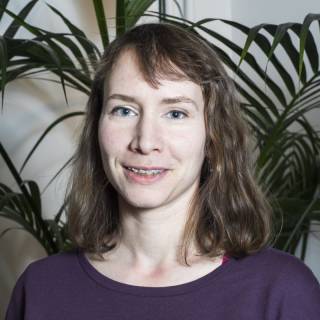Galina Gurova is a doctoral candidate and a researcher in education governance and comparative education. She focuses mainly on the local level of  policy enactment. Galina studied the roles of evaluation in general education in Russia within the project Transnational Dynamics in Quality Assurance and Evaluation Politics of Basic Education in Brazil, China and Russia (2014–2017). Specifically, she wrote about teachers’ and local authorities’ reactions to the new quality evaluation policy. She also studied the ways in which evaluation policy influenced education inequality.
policy enactment. Galina studied the roles of evaluation in general education in Russia within the project Transnational Dynamics in Quality Assurance and Evaluation Politics of Basic Education in Brazil, China and Russia (2014–2017). Specifically, she wrote about teachers’ and local authorities’ reactions to the new quality evaluation policy. She also studied the ways in which evaluation policy influenced education inequality.
Galina Gurova holds MA degrees in sociology from the Lomonosov Moscow State University, Russia, and education sciences from the University of Oulu, Finland. She is interested in research collaborations and applied projects in the area of her research and teaching interests:
- Education policy and governance
- Comparative and international education
- Local actors’ agency in policy enactment
- Qualitative research methods
Publications:
Gurova, G., & Piattoeva, N. (in press) A postsocialist perspective on audit culture: changing practices and subjectivities of school teachers in a Russian region. In Carvalho L.-M., Levasseur L., Liu M., Normand R., Oliveira A. (eds) Education Policies and the Restructuring of the Educational Profession. Global and Comparative Perspectives. Dordrecht, Springer.
Piattoeva, N., & Gurova, G. (in press) Domesticating international assessments in Russia: historical grievances, national values, scientific rationality and education modernization. In Alarcon C. and Lawn M. (eds.) Student Assessment Cultures in Historical Perspective.
Gurova, G. (2017) Soviet, post-Soviet and neoliberal: Governing Russian schools through quality assurance and evaluation. Policy Futures in Education.
Gurova, G.; Piattoeva, N. & Takala, T. (2015): Quality of education and its evaluation: an analysis of the Russian academic discussion. European Education 47 (4), 346-364.
Monographies:
Gurova, Galina (2014). A programme for Russian higher education leaders through the New Public Management lens. University of Oulu. Master’s thesis.
